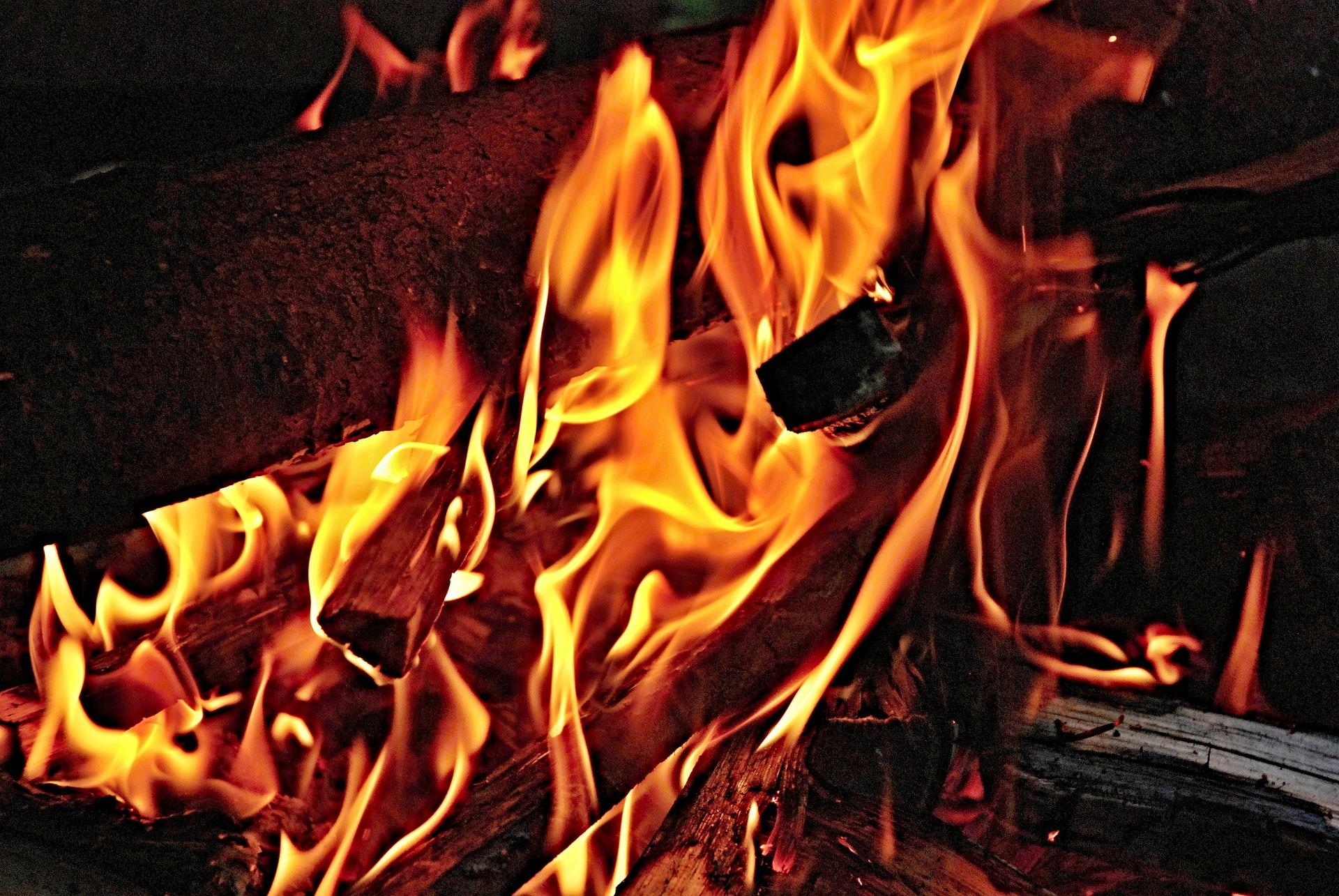Basque ethnography at a glance

Fire in the hearth.
The celebration of solstices dates back to ancient times, and there are good reasons to think some of the practices and beliefs observed in this land might have roots in certain solstice rituals, as might be the case with an old Christmas tradition now almost extinguished and to which this note is devoted to.
The custom of burning a large log in the hearth on Christmas Eve used to be widespread across the country, according to Barandiaran. The Yule log was known by a variety of names depending on location: in Abadiño (Bizkaia) Gabon-subila, in Zegama (Gipuzkoa) Gabon-zuzia, in Amorebieta-Etxano (Bizkaia) Gabon-mukurra, in Aezkoa (Navarra) Subilaro-egurra, in Agurain (Álava) porrondoko, in Oiartzun (Gipuzkoa) Olentzero-enborra…
The log, usually of oak or beech, was carefully selected in advance. Some would choose the log in the autumn and save it for Christmas; others would have a whole tree dragged to the hearth of the house by a pair of oxen.
The specially chosen log was laid upon the fire on Christmas Eve and left to burn all night until daylight. In some places tradition demanded the Yule fire last till New Year, if possible. The entire family seated by the fire while the Yule log was burning.
The mostly-burned log was removed from the hearth and saved to light the next year’s log; should all of it be consumed by the fire, the embers were preserved. Special virtues were attributed to the remains of the Yule log. They were believed to protect the house and its dwellers, warding off a range of misfortunes. Some would have the livestock walking over them or the pens smoked with them so as to protect the animals from disease and other perils; others scattered the ashes over the fields to safeguard the crops. In some houses the charred block was lighted again in the event of a storm for protection against lighting.
In origin, the log burned in hearths in our country and beyond as part of the ceremonies performed during the winter solstice night might have been an emblem of the returning sun and the increase of its light and heat.
Jaione Bilbao – Ethnography Department – Labayru Fundazioa
(Adapted from House and Family, part of the Ethnographic Atlas of the Basque Country collection)

